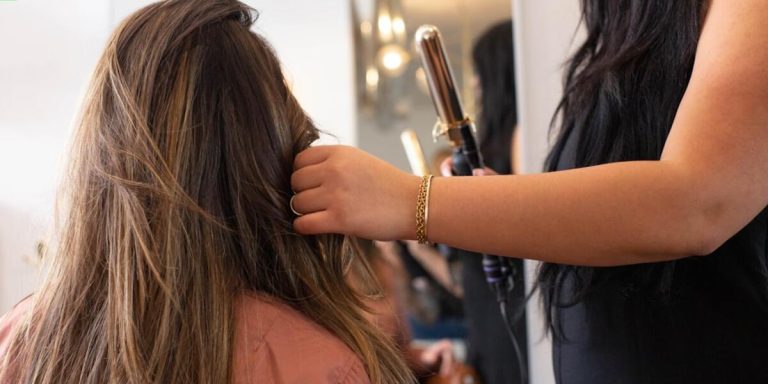What Health Conditions Cause Hair Loss: A Comprehensive Look into Triggers and Symptoms
In an attempt to uncover the underlying factors of hair fall, one often stumbles upon the question – “what health conditions cause hair loss?” While genetics and aging are commonly linked with this issue, various other medical problems can also trigger significant hair thinning or even baldness. Creating awareness about these might facilitate early diagnosis and appropriate intervention.
This blog post will provide a comprehensive look into those elusive triggers behind your receding mane which could be tied up with certain illnesses that often go unnoticed. It aims to elucidate not just the causes but also delve deep into their corresponding symptoms related to hair health. Empowered by such knowledge, it should become significantly easier for you to discern normal from abnormal shedding.
Did you know?
Did you know that nearly 50% of women will experience noticeable hair loss by the time they reach age 50, often due to health-related triggers such as hormonal changes post-menopause?
Understanding Hair Loss: Health Conditions That May Be Culprits
Hair loss is often attributed to a variety of factors, from genetics and aging to poor nutrition and stress. However, in some cases, it’s the silent indicator of underlying health conditions that may not be immediately apparent. It’s 2023 now, and advancements in medical science have shed light on numerous diseases being potential culprits behind your deteriorating hair health.
Thyroid disorders such as hyperthyroidism (an overactive thyroid) and hypothyroidism (an underactive thyroid) can disrupt the hormones necessary for proper hair growth, often resulting in thinning or bald patches.
Autoimmune diseases like Alopecia Areata also cause hair loss when the immune system mistakenly attacks the cells responsible for hair growth, resulting in round bald spots on the scalp.
Skin conditions such as psoriasis or dermatitis can cause inflammation that may lead to temporary but significant hair shedding.
In other instances, serious illnesses such as lupus or diabetes could also contribute significantly towards premature greying and notable decline in overall hair wellness due its impact on body functions at the cellular level disrupting normal follicular functioning. Certain nutritional deficiencies especially lack iron play major roles too by impeding oxygen supply essential for robust locks.
It should also not escape our attention that hormonal imbalances triggered by menopause or Polycystic Ovary Syndrome(PCOS), amongst others are quite common reasons resulting into frustrating fall out phases among women today.
Recognizing the Signs of Alopecia Areata
Alopecia Areata is a common autoimmune disorder that often results in unpredictable hair loss. Recognizing the signs of this condition can help you seek treatment earlier, potentially minimizing its impact on your overall hair health.
People with Alopecia Areata experience patchy hair loss. Usually, clumps of hair may fall out resulting in smooth, round patches about the size of a coin or larger on their scalp. This uncontrolled shedding could affect other parts as well like eyebrows, eyelashes and even facial and body hairs.
Quickly recognizing these early symptoms can be difficult because they’re often too subtle for those affected to notice outright. However, watch for the following indications:
1) One or Multiple Bald Spots: The first sign most people notice is usually small bald spots which might expand over time.
2) Unusual Hair Loss: Excessive amounts of strands falling out when brushing or washing signify abnormal shedding.
3) Full Body Hair Loss: Although rare but it’s possible for Alopecia Areata to progress into complete head-to-toe hair loss known medically as alopecia universalis.
It’s crucial to remember that despite being an autoimmune response linked genetic factors – everyone’s encounter with alopecia will differ based on personal environments & physiological constitution.
The Impact of Thyroid Disorders on Hair Follicles
Thyroid disorders are well-known health conditions that cause hair loss. Both hyperthyroidism, an overactive thyroid gland and hypothyroidism or underactive thyroid have been closely tied to disruptions in the normal growth cycle of hair follicles.
Hyperthyroid individuals often find their locks thinning out as a direct result of this condition. But why does it occur? It’s because your body is producing more thyroxine than needed, which accelerates your metabolism leading to sudden weight loss and rapid heart rate —and yes, also altering the speed at which your hair grows and sheds.
On the other hand, if you’re dealing with hypothyroidism – where not enough thyroxine gets produced – expect issues like slowed down metabolism causing fatigue, unexpected weight gain and guess what—sluggish groaning pace for those precious hairs too!
An interesting fact about these conditions is that they don’t necessarily lead to total baldness but notably disturb overall thickness due to increased shedding.
Getting treated promptly can help reverse most cases of thyroid-related hair fall problems.
Now comes another question: How do you know if either one could be behind any alarming increase in strands twirling around your brush every morning?
Hormonal Imbalances and Their Role in Hair Shedding
Hormonal imbalances often cause hair loss and are frequently disregarded, with genetics or aging usually blamed. These conditions affect how our bodies function and significantly influence hair growth patterns.
Various reasons, like stress, poor diet, certain medications for both genders, pregnancy and childbirth in women, and prostate issues in men can lead to changes in hormonal levels. These changes disturb the balance of a hormone named Dihydrotestosterone (DHT), which becomes harmful when its levels rise above normal.
Hormonal imbalances occur when hormones like estrogen and progesterone in females, or testosterone in males, along with thyroid hormones, are produced in excess or insufficient amounts. These imbalances can significantly impact various bodily functions including metabolism rates and mood stabilization, and seriously affect hair health.
Hormones facilitate healthy hair growth cycles by encouraging the growth phases of follicles. Disrupted hormone levels can force follicles into premature resting stages, resulting in widespread hair shedding.
At its core- identifying the symptoms early leads you within reach of effective solutions minimizing this unnecessary distress linked with Hair Health. With 2023 witnessing groundbreaking advancements across medical science fields enabling more accessible diagnostics tests precisely determining hormone imbalances underlying causes hence making targeted treatment plans attainable combating this type hair loss effectively.
How Polycystic Ovary Syndrome (PCOS) Leads to Thinning Locks
Polycystic Ovary Syndrome, commonly known as PCOS, is a hormonal disorder that millions of women across the globe struggle with. One less-discussed side effect of PCOS is indeed hair loss or thinning locks. This exacerbates the need to understand what health conditions cause hair loss.
PCOS affects women during their reproductive years and results in higher levels of male hormones called androgens within the body. Consequently, these elevated hormone levels often disrupt normal follicular growth patterns on your scalp leading to thinner strands over time.
Scientifically speaking, each strand has its unique life cycle divided into three phases – Growth (Anagen), Resting (Telogen) and Shedding (Catagen). When there’s an upsurge in testosterone due to PCOS attributes like insulin resistance or inflammation; it converts into dihydrotestosterone(DHT). DHT latches onto your follicles shrinking them down disrupting this natural life-cycle causing premature entry into “shedding” stage which leads to more thinned-out patches than usual.
There are noticeable signs indicating how Polycystic Ovary Syndrome may lead you towards losing those precious tresses including dryness followed by excessive shedding while brushing or washing hairs later transforming gradually into female pattern baldness:i.e., recessed frontal line along with diffuse thinning all over but larger at crown area.
Navigating Hair Changes During Menopause
During menopause, estrogen levels drop significantly which can lead to thinning or shedding hair as this hormone plays a key role in promoting growth and maintaining thickness and shine.
Simultaneously, increased testosterone production may result in pattern baldness similar to what many males experience but with subtle differences due to female physiology. This process begins when testosterone converts into dihydrotestosterone (DHT) – an agent responsible for shrinking hair follicles leading them incapable of sustaining healthy growth eventually causing the loss.
Many women observe dryness or brittleness during post-menopausal phase largely because decreased estrogen fails to provide necessary moisture not only affecting skin suppleness but also contributing towards breakage-prone dull locks.
Apart from regular hormonal fluctuations related directly with menopause certain chronic illnesses are known factors stimulating abnormal shedding cycle like hypothyroidism where under-active thyroid isn’t capable enough producing vital hormones required by your body with evident manifestations including weight gain fatigue depression along unexplained frequent falling strands.
Nutrient Deficiencies Linked to Increased Hair Fall
Hair health is often a reflection of what’s happening internally in our bodies, and nutrient deficiencies are no exception to this rule. When the body lacks certain essential vitamins and minerals, one of the first indicators can be increased hair fall. This is because nutrients like iron, zinc, vitamin D among others play a pivotal role in maintaining not just overall health but also specifically contribute towards healthy hair growth.
Iron deficiency anemia is one such condition that has been widely linked with hair loss. Iron plays an integral part in producing haemoglobin – the substance present in red blood cells responsible for carrying oxygen for growth and repair of every cell within your body including those involved with growing hairs! Hence it’s easy to see how insufficiency could lead to drastic effects on your mane!
Similarly Zinc helps keep hormone levels regulated which directly impacts follicular strength; thus its lack thereof may accelerate shedding episodes or even hinder regrowth altogether. Vitamin D too holds great significance as it aids creation new follicles where new hairs grow from hence low levels might stunt natural replenishment processes leaving you high dry literally figuratively!
In 2023 we have more stressors adding up than ever before -be it environmental change strains modern lifestyle- consequently taking toll upon important bodily functions including most visible ones us: Our Hair Health let stick basics ensure fulfilling nutritional needs stop unwanted excessive falling tracks start journey towards lush volumised head full lustrous locks.
The Consequences of Iron Deficiency Anemia on Scalp Health
Iron deficiency anemia, a common health condition that can cause hair loss, impacts the entire body but its detrimental effects are often most visible on our scalp and hair. The lack of sufficient iron in the body hinders red blood cell production, leading to inadequate oxygen supply to cells – including those responsible for healthy hair growth.
One such symptom of this deficiency is increased and abnormal shedding known as telogen effluvium. When your body lacks significant nutrients like iron, it diverts whatever available resources towards supporting vital functions; unfortunately leaving less important operations like follicle proliferation at stake.
Moreover, individuals with low iron levels frequently experience dryness and brittleness because their strands aren’t getting enough hydration or essential oils from the scalp’s glands – conditions necessary for preserving moisture inside each fiber. Not surprisingly then ‘what health conditions cause hair loss’ hashes out prominently over web searches worldwide!
Vital Vitamins for Maintaining Strong and Healthy Hair
Vitamins are invaluable resources that our bodies require for vital functions – one such function being maintaining strong and lustrous locks. The lack of certain vitamins can influence not only the strength but also the density of your crowning glory.
Let’s take a closer look at some crucial vitamins necessary:
1) Vitamin A: This vitamin is needed by all cells for growth – including hair! Deficiency may lead to dry scalp which could potentially increase chances of breakage.
2) B Vitamins: Especially biotin (B7), this group plays an integral role in cell reproduction contributing significantly towards stronger roots thus minimizing excessive shedding.
3) Vitamin C: Powerful antioxidant properties help prevent oxidative stress which threatens follicle structure leading potential thinness over duration.
4) Vitamin D: Emerging studies highlight link between low levels causing alopecia; however whether supplementation reverses condition still needs further investigation.
5)Vitamin E : Just like vitamin C possesses antioxidants reducing exercise-induced free radicals thereby promoting conducive environment encouraging lush mane growth.
It’s critical noting supremely high intake does pose risks making it wise sticking with recommended daily allowance unless otherwise directed professionally.
Conclusion
In your quest to understand “what health conditions cause hair loss,” knowledge truly is power. Identifying the precise medical triggers and recognising early symptoms can make all the difference, keeping you one step ahead in maintaining a luscious mane. But remember, while it’s important to stay informed, don’t let fear drive your journey toward hair health – every problem has a solution.
As we wrap up this discussion on what causes hair loss due to various health conditions, keep delving deeper into this topic right here on our website. With an abundant wealth of information at your disposal connected with ‘Hair Health’, further exploration will only enhance awareness and equip you better for future challenges! Now go forth and conquer – because when Hair Health is robust; confidence just comes naturally.







